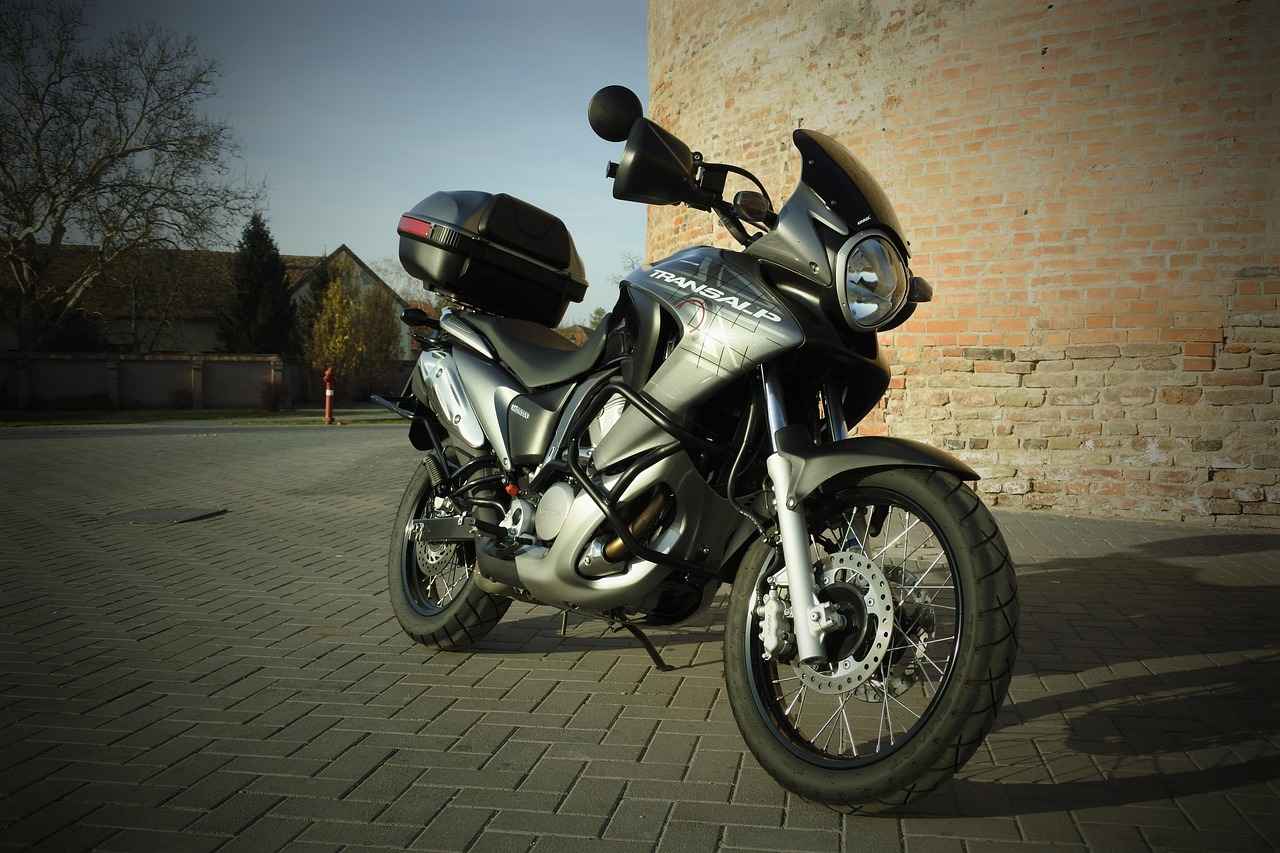The Honda Accord is a popular choice among midsize sedans, renowned for its reliability, comfort, and performance. However, many potential buyers wonder about its drivetrain options, particularly whether it features a four-wheel drive (4WD) system. This article aims to clarify the drivetrain configurations of the Honda Accord, focusing on its capabilities and how they stack up against competitors.
The Honda Accord is predominantly equipped with a front-wheel drive (FWD) system. While this configuration is standard, understanding the alternatives available can help consumers make informed decisions based on their driving needs.
In the Accord, the FWD system means that the engine’s power is directed to the front wheels. This design enhances traction during acceleration and offers better fuel efficiency compared to all-wheel drive systems. The FWD configuration also contributes to the vehicle’s balanced handling and stability, particularly in urban driving conditions.
- Improved Fuel Efficiency: The FWD system allows for lighter vehicle weight, leading to better mileage.
- Enhanced Traction: FWD vehicles often perform well in rain and light snow due to the weight of the engine over the front wheels.
- Cost-Effectiveness: Generally, FWD vehicles are less expensive to manufacture and maintain.
While FWD offers various advantages, it does have its limitations:
- Performance Constraints: FWD vehicles may struggle with handling during aggressive driving compared to all-wheel drive.
- Off-Road Capability: FWD is not ideal for off-road adventures or severe winter conditions.
Currently, the Honda Accord does not offer an all-wheel drive (AWD) option. This absence may be a consideration for buyers who require enhanced traction and stability in challenging driving conditions.
Understanding the differences between AWD and FWD is crucial for prospective buyers. AWD systems provide power to all four wheels, improving traction on slippery surfaces. This comparison helps buyers assess what configuration suits their driving habits best.
For buyers specifically seeking AWD capabilities, several alternatives exist within the midsize sedan market:
- Toyota Camry: Offers an AWD option for enhanced stability.
- Subaru Legacy: Comes standard with AWD, making it ideal for winter driving.
- Ford Fusion: Provides AWD in select trims, catering to diverse driving needs.
The performance of the Honda Accord can vary significantly based on its FWD configuration. In wet or slippery conditions, the Accord’s handling and stability are influenced by its drivetrain setup.
Driving in rain can present challenges, but the Accord’s FWD system aids in maintaining traction. The weight distribution helps the front tires grip the road, enhancing overall stability. However, tire quality also plays a critical role in performance.
When faced with snow and icy roads, the Accord’s FWD may not perform as well as AWD systems. To enhance safety, drivers should consider investing in high-quality winter tires and practicing cautious driving techniques.
When evaluating the Honda Accord against its competitors, it becomes clear that while the Accord excels in reliability and fuel efficiency, it lacks the AWD option that some rivals offer. This can be a significant factor for buyers in regions with harsh weather.
Several competitors in the midsize sedan segment provide AWD options, which can be appealing for those needing extra traction:
- Subaru Legacy: Known for its standard AWD.
- Toyota Camry: Offers AWD in select trims.
The Honda Accord remains a strong contender in the midsize sedan market due to its value, reliability, and overall performance. While it may not feature AWD, its FWD system provides adequate performance for daily driving and urban environments.

What Drivetrain Options Does the Honda Accord Offer?
The Honda Accord is a well-regarded midsize sedan, primarily recognized for its front-wheel drive (FWD) configuration. However, understanding the full range of its drivetrain options is essential for potential buyers. This knowledge not only clarifies the vehicle’s capabilities but also helps in determining its suitability for various driving conditions.
The Honda Accord predominantly features a front-wheel drive system, which is a popular choice among many sedans. This configuration directs the engine’s power to the front wheels, enhancing traction and handling in typical driving scenarios. However, it’s important to note that the Accord does not currently offer a four-wheel drive (4WD) option, which is often sought after for off-road capabilities or challenging weather conditions.
In addition to FWD, the Accord is equipped with a range of advanced engine choices, including a fuel-efficient hybrid variant. The hybrid model combines a gasoline engine with an electric motor, providing an eco-friendly alternative while maintaining commendable performance. This variety in drivetrain options allows buyers to select a configuration that best fits their driving habits and environmental considerations.
The standard front-wheel drive system in the Honda Accord has a significant impact on its overall performance. By distributing power to the front wheels, FWD enhances the vehicle’s maneuverability and stability during acceleration, especially on slippery surfaces. In addition, this configuration tends to result in a lighter vehicle design, which can improve fuel efficiency.
- Improved Traction: FWD offers better traction in wet or snowy conditions, as the weight of the engine is over the drive wheels.
- Fuel Efficiency: Generally, FWD vehicles are more fuel-efficient compared to their all-wheel drive counterparts.
- Cost-Effective: Maintenance and repair costs are usually lower for FWD systems, making them more budget-friendly.
Despite its advantages, FWD does have some limitations. Performance enthusiasts may find that FWD lacks the dynamic handling characteristics of all-wheel drive systems, particularly in high-performance scenarios. Additionally, FWD vehicles can struggle with off-road capabilities, making them less suitable for adventurous drivers.
Many potential buyers inquire about the availability of all-wheel drive (AWD) for the Honda Accord. Currently, the Accord does not offer AWD as an option, which may be a deciding factor for those living in regions with harsh weather conditions or for those who prefer the added control that AWD provides.
Understanding the distinctions between AWD and FWD is crucial for making an informed decision. While AWD offers enhanced stability and traction in various conditions, FWD tends to be more fuel-efficient and cost-effective. Buyers should weigh their priorities, such as performance versus economy, when selecting between these drivetrain options.
For those specifically seeking AWD capabilities, several competitors in the midsize sedan segment offer this feature. Vehicles like the Toyota Camry and Subaru Legacy provide AWD options, appealing to drivers who prioritize all-weather performance.
The performance of the Honda Accord can vary significantly based on its FWD configuration. In typical driving conditions, the Accord showcases its reliability and efficiency. However, its performance in adverse conditions, such as rain or snow, can also be impressive when equipped with quality tires.
Driving in wet conditions can pose challenges, but the Accord’s FWD system helps maintain stability. The weight distribution over the front wheels allows for better grip, making it easier to navigate through rain-soaked roads.
When it comes to winter driving, the Accord’s FWD can handle light snow conditions reasonably well. However, drivers should consider investing in winter tires to enhance safety and traction during icy conditions.
When evaluating the Honda Accord against its competitors, it becomes clear that the Accord’s FWD configuration is a strong selling point, especially for buyers who value fuel efficiency and reliability. However, for those seeking AWD, alternatives may be more appealing.
Several midsize sedans, such as the Ford Fusion and Nissan Altima, provide AWD options, catering to drivers who need enhanced traction and stability. A comparison of these models can help potential buyers identify the best fit for their needs.
The Honda Accord remains a top choice for many due to its reputation for reliability, spacious interior, and overall value. Its drivetrain options, particularly the efficient FWD and hybrid configurations, contribute significantly to its appeal, especially for those on a budget.

How Does Front-Wheel Drive Work in the Accord?
The Honda Accord has long been celebrated for its reliability, comfort, and performance. A significant aspect of its driving dynamics is its front-wheel drive (FWD) configuration. This article explores how FWD operates in the Accord and its implications for drivers.
In the Honda Accord, the front-wheel drive system means that the engine’s power is directed to the front wheels. This setup not only influences the car’s handling but also affects its fuel efficiency and overall driving experience. The FWD configuration helps to distribute the vehicle’s weight more evenly, which can enhance traction, especially during acceleration.
- Improved Traction: FWD vehicles typically provide better traction during adverse weather conditions such as rain and snow. The weight of the engine over the front wheels helps maintain grip.
- Fuel Efficiency: FWD systems are generally lighter than all-wheel drive systems, leading to better fuel economy. This is especially beneficial for daily commuters.
- Cost-Effectiveness: FWD vehicles often have lower manufacturing costs, which can translate into more affordable pricing for consumers.
While FWD has numerous advantages, it is essential to recognize its limitations. For instance, FWD vehicles may struggle with high-performance driving and off-road capabilities. When cornering at high speeds, FWD can lead to understeer, which may affect handling dynamics. Additionally, FWD systems may not perform as well in rugged terrains compared to all-wheel drive systems.
Many potential buyers wonder if the Honda Accord offers an all-wheel drive (AWD) option. Currently, the Accord does not come with AWD, which is an important consideration for those living in regions with severe weather conditions.
The performance of the Honda Accord can vary based on the driving conditions. In wet weather, the FWD system tends to perform adequately, but it’s crucial for drivers to maintain high-quality tires to maximize safety. In snowy conditions, the Accord can be driven effectively, but caution is advised, and using winter tires can significantly enhance safety.
When comparing the Honda Accord to its competitors, particularly those that offer AWD, it becomes clear that while FWD has its benefits, it may not meet the needs of every driver. Vehicles like the Toyota Camry and Subaru Legacy offer AWD options, making them attractive alternatives for those prioritizing traction and stability in challenging conditions.
Despite the absence of AWD, the Honda Accord remains a top choice for many due to its reliability, comfort, and overall value. The FWD system contributes to its appeal by providing a balance of performance and efficiency, making it an excellent option for everyday driving.
Benefits of Front-Wheel Drive
The Honda Accord, a popular choice among midsize sedans, is primarily equipped with a front-wheel drive (FWD) system. This configuration offers several notable advantages, especially in terms of traction and fuel efficiency. In this section, we will explore the specific benefits of FWD systems in the context of the Honda Accord, highlighting how they contribute to a better driving experience.
One of the most significant benefits of FWD is its ability to provide better traction in challenging weather conditions, such as rain or light snow. Since the weight of the engine is over the front wheels, this setup enhances grip, allowing the Accord to maintain stability and control. Drivers can feel more confident navigating slick roads, as the FWD system minimizes the risk of skidding.
The Honda Accord’s FWD configuration also contributes to improved fuel efficiency. By placing the engine at the front and driving the front wheels, the car’s design reduces the overall weight and complexity of the drivetrain. This streamlined setup allows for better fuel economy compared to all-wheel drive (AWD) systems, making the Accord a cost-effective choice for daily commuting.
Another advantage of FWD is the lower maintenance costs associated with its simpler drivetrain. Fewer components mean less wear and tear, translating to lower repair bills over time. For budget-conscious buyers, the Accord’s FWD system offers a practical solution without compromising on performance.
FWD also positively impacts the handling and driving dynamics of the Honda Accord. The weight distribution helps create a balanced feel, allowing for responsive steering and cornering. This makes the Accord enjoyable to drive, particularly on winding roads or during everyday maneuvers.
In addition to performance benefits, FWD vehicles like the Honda Accord often provide more interior space compared to their AWD counterparts. The absence of a rear driveshaft allows for a more spacious cabin and trunk, enhancing overall comfort for passengers and cargo alike.
For city dwellers, the Honda Accord’s FWD system is particularly advantageous. The combination of maneuverability and fuel efficiency makes it an ideal choice for navigating busy streets and tight parking spaces. Drivers can enjoy a smooth ride without the added bulk of AWD systems that may not be necessary in urban settings.
In summary, the benefits of the front-wheel drive system in the Honda Accord are numerous. From enhanced traction in adverse weather conditions to improved fuel efficiency and lower maintenance costs, FWD offers a compelling package for a wide range of drivers. Whether you’re commuting in the city or embarking on a weekend getaway, the Accord’s FWD configuration ensures a reliable and enjoyable driving experience.
Limitations of Front-Wheel Drive
The Honda Accord is a popular choice among sedan enthusiasts, known for its reliability and efficiency. However, while the front-wheel drive (FWD) system has its advantages, it also comes with certain limitations that can impact drivers in various scenarios. Understanding these limitations is crucial for potential buyers and current owners alike.
One of the main drawbacks of FWD in the Honda Accord is its performance in challenging conditions. While FWD can provide adequate traction in most scenarios, it may struggle under extreme circumstances. For instance, during heavy rain or snow, the front wheels can lose grip, leading to potential control issues.
Another significant limitation of the Accord’s FWD system is its off-road capabilities. Unlike all-wheel drive (AWD) or four-wheel drive (4WD) systems, FWD is not designed for rugged terrains. Drivers who enjoy outdoor adventures may find themselves limited when attempting to navigate through rough trails or unpaved roads.
In wet or icy conditions, the Honda Accord’s FWD can sometimes lead to understeering, where the vehicle tends to move straight instead of turning as intended. This can be particularly concerning during sharp turns or sudden maneuvers. Proper tire maintenance and selection become even more critical in these situations to enhance grip and stability.
While FWD vehicles like the Accord are often praised for their fuel efficiency, this can come at the cost of performance. The engine’s power is directed primarily to the front wheels, which can limit acceleration and overall responsiveness compared to AWD systems. Enthusiastic drivers who prioritize speed and agility may find this aspect disappointing.
For many Accord drivers, the limitations of FWD can affect their overall driving experience. Whether commuting in urban settings or embarking on weekend getaways, the lack of AWD can create anxiety during adverse weather conditions. Understanding these factors can help drivers make informed decisions about their driving needs.
- Invest in Quality Tires: Opting for high-quality all-season or winter tires can significantly improve traction and handling.
- Drive Cautiously: Adjusting driving habits during adverse weather can help maintain control and safety.
- Consider Alternatives: For those who frequently drive in challenging conditions, exploring vehicles with AWD or 4WD may be beneficial.
In summary, while the Honda Accord’s front-wheel drive system offers several advantages such as fuel efficiency and ease of handling in normal conditions, it also presents limitations that can affect performance and safety in extreme situations. By recognizing these challenges, drivers can better prepare for their journeys and make informed choices about their vehicle needs.

Is All-Wheel Drive Available for the Honda Accord?
When considering a new vehicle, many potential buyers are curious about the availability of all-wheel drive (AWD) for the Honda Accord. This popular midsize sedan has long been a favorite for its reliability, performance, and comfort. However, the absence of AWD in its lineup raises questions for those who prioritize enhanced traction and stability on various road conditions.
The Honda Accord is primarily designed with a front-wheel drive (FWD) system, which is standard across most of its models. This configuration offers several benefits, such as improved fuel efficiency and better handling in typical driving scenarios. However, the question remains: Is AWD an option for the Honda Accord?
As of now, the Honda Accord does not offer an all-wheel drive option. This decision is rooted in the brand’s focus on delivering a sedan that excels in fuel economy and everyday driving comfort. While many competitors in the midsize segment have introduced AWD options, Honda has opted to maintain its traditional FWD setup for the Accord.
The lack of AWD in the Honda Accord may be a drawback for some drivers, especially those living in regions with severe weather conditions. Without AWD, the Accord may struggle in snowy or icy conditions compared to vehicles equipped with AWD systems. However, it’s important to note that the Accord’s FWD system is designed to provide adequate traction in most driving situations.
- Performance in Adverse Conditions: AWD systems generally provide better traction on slippery surfaces, making them ideal for winter driving.
- Fuel Efficiency: FWD vehicles like the Accord often offer better fuel economy than their AWD counterparts due to lighter weight and less drivetrain complexity.
- Cost: Vehicles with AWD typically come with a higher price tag, both in terms of initial purchase and potential maintenance costs.
For buyers specifically seeking AWD capabilities, there are several alternatives to the Honda Accord worth considering. Competitors such as the Toyota Camry, Subaru Legacy, and Nissan Altima offer AWD as an option, providing enhanced performance in challenging weather conditions. Each of these models presents unique features and benefits that may appeal to drivers looking for a midsize sedan with AWD.
While the Accord may not have AWD, its performance in different conditions is still commendable. The FWD system allows for decent handling in rain and light snow, especially when equipped with quality tires. However, drivers should exercise caution in more extreme weather.
In wet conditions, the Accord’s FWD can provide stability, but it is essential to ensure that the tires have adequate tread and are suited for such conditions. On the other hand, during snowy or icy weather, drivers may find that the lack of AWD can lead to challenges in maintaining traction.
In summary, while the Honda Accord does not offer an AWD option, it remains a strong contender in the midsize sedan market due to its reliability and overall value. Buyers should weigh their specific needs against the Accord’s capabilities and consider alternatives if AWD is a must-have feature.
Comparing AWD and FWD in Sedans
When it comes to choosing a sedan, understanding the drivetrain options available is crucial for making an informed decision. In this section, we will delve into the differences between All-Wheel Drive (AWD) and Front-Wheel Drive (FWD), particularly in the context of sedan performance. This comparison will help potential buyers identify which configuration aligns best with their driving needs and preferences.
FWD is a drivetrain configuration where the engine’s power is directed to the front wheels. This setup is common in many sedans, including the Honda Accord. FWD offers several advantages:
- Fuel Efficiency: FWD vehicles generally weigh less, which can lead to improved fuel economy.
- Traction: In most driving conditions, FWD provides better traction, especially in wet or slippery conditions.
- Cost-Effectiveness: FWD systems are usually less expensive to manufacture, making vehicles more affordable for consumers.
AWD, on the other hand, distributes power to all four wheels, enhancing traction and stability. This system is particularly beneficial in challenging driving conditions. Some of the key benefits of AWD include:
- Enhanced Traction: AWD provides improved grip on slippery surfaces, such as snow or ice.
- Better Handling: The distribution of power to all wheels can lead to improved handling during sharp turns and adverse weather conditions.
- Versatility: AWD vehicles are often more versatile, suitable for both urban driving and off-road adventures.
When comparing FWD and AWD in sedans, performance can significantly vary. Here are some factors to consider:
| Feature | FWD | AWD |
|---|---|---|
| Traction in Rain/Snow | Good | Excellent |
| Fuel Efficiency | Better | Lower |
| Cost | Lower | Higher |
| Handling | Standard | Superior |
Choosing between FWD and AWD largely depends on your driving habits and the conditions you typically encounter. If you live in an area with mild weather and prioritize fuel efficiency, FWD may be the better option. However, if you frequently drive in snowy or off-road conditions, AWD might be worth the extra investment.
Ultimately, both drivetrain options have their unique advantages and limitations. Understanding these differences can empower buyers to make a choice that best fits their lifestyle and driving needs.
What Are the Alternatives to the Accord with AWD?
When considering a vehicle that offers all-wheel drive (AWD), potential buyers often seek alternatives to the Honda Accord. While the Accord is renowned for its reliability and performance, it primarily features a front-wheel drive (FWD) system. For those who prioritize AWD capabilities, several options in the midsize sedan category provide a compelling choice. This section explores some notable alternatives that cater to drivers seeking enhanced traction and stability.
Choosing an AWD vehicle can significantly impact driving performance, especially in adverse weather conditions. AWD systems distribute power to all four wheels, improving grip on slippery surfaces such as rain, snow, or ice. For consumers in regions with harsh climates, this feature becomes essential for safety and confidence on the road.
- Toyota Camry AWD: The Toyota Camry is a strong contender in the midsize sedan market, now featuring an AWD option. It combines fuel efficiency with a reliable AWD system, making it suitable for various driving conditions.
- Subaru Legacy: Known for its standard AWD across all models, the Subaru Legacy provides excellent handling and stability. This vehicle is particularly favored by those who frequently drive in snowy or rugged terrains.
- Nissan Altima AWD: The Nissan Altima offers a unique AWD option in its lineup, enhancing its appeal to buyers looking for a blend of style and performance. Its advanced technology and comfort make it a worthy competitor.
- Kia K5 AWD: The Kia K5, a newer entrant, comes with an available AWD system that enhances its sporty handling and performance. This model is designed to attract younger buyers seeking modern aesthetics and functionality.
- Ford Fusion AWD: Although discontinued, used Ford Fusion models equipped with AWD still provide a reliable option for those seeking a midsize sedan with enhanced traction capabilities.
When comparing these alternatives to the Honda Accord, several factors come into play:
- Performance: AWD vehicles generally outperform FWD models in terms of acceleration and handling in challenging conditions. The Subaru Legacy stands out with its symmetrical AWD system, offering superior stability.
- Fuel Efficiency: While AWD systems can enhance performance, they may also impact fuel efficiency. The Toyota Camry AWD strikes a balance, providing decent mileage without compromising on power.
- Technology and Safety Features: Many AWD alternatives come equipped with advanced safety features and driver-assistance technologies, making them appealing to safety-conscious buyers.
Before making a decision, potential buyers should evaluate their specific needs:
- Driving Conditions: Assess the typical weather and road conditions in your area. If you frequently encounter snow or rain, an AWD vehicle may be a wise investment.
- Budget: AWD options can vary significantly in price. Determine your budget and explore models that fit within it while meeting your performance expectations.
- Test Drives: Always take the time to test drive AWD alternatives. Personal experience with handling and comfort can greatly influence your choice.
In conclusion, while the Honda Accord remains a strong choice for many drivers, those specifically seeking AWD capabilities have several excellent alternatives. By considering factors such as performance, fuel efficiency, and safety features, buyers can make an informed decision that aligns with their driving needs and lifestyle.

Performance of the Honda Accord in Various Conditions
The Honda Accord is a well-regarded midsize sedan known for its reliability and performance. However, the performance can significantly vary depending on the drivetrain configuration and the driving conditions. This section will explore how the Accord handles different scenarios, particularly in adverse weather such as rain and snow.
Driving in wet conditions can be challenging for any vehicle. The front-wheel drive (FWD) system in the Honda Accord provides several benefits when navigating through rain-soaked roads. The weight of the engine over the front wheels enhances traction, allowing for better grip on slippery surfaces.
- Tire Quality Matters: The performance of the Accord in rain heavily relies on the quality of the tires. Good tread depth and proper inflation are crucial for maintaining grip.
- Handling and Stability: The Accord’s suspension system is designed to offer stable handling, minimizing the risk of hydroplaning.
Winter conditions present a different set of challenges. While the Honda Accord is not equipped with an all-wheel drive (AWD) system, it still performs reasonably well in light snow when equipped with appropriate winter tires. Here’s how:
- Weight Distribution: The front-heavy design of the Accord can aid in traction, but it may struggle in deeper snow compared to AWD vehicles.
- Driver Assistance Features: Many modern Accords come equipped with advanced safety features that can help maintain control, such as traction control and stability systems.
Understanding the impact of drivetrain configurations is essential. The Honda Accord primarily features a FWD setup, which is beneficial for fuel efficiency and everyday driving. However, for those living in areas with heavy snowfall or rugged terrain, an AWD system might be more suitable. Here are some key differences:
| Feature | Front-Wheel Drive (FWD) | All-Wheel Drive (AWD) |
|---|---|---|
| Traction in Rain | Good | Excellent |
| Traction in Snow | Moderate | Superior |
| Fuel Efficiency | Higher | Lower |
To maximize the performance of the Honda Accord in challenging conditions, drivers can make several enhancements:
- Invest in Quality Tires: Switching to all-season or winter tires can significantly improve traction in both rain and snow.
- Regular Maintenance: Keeping the vehicle well-maintained ensures optimal performance, especially during adverse weather.
In summary, while the Honda Accord may not offer AWD, it still provides satisfactory performance in various driving conditions, particularly when equipped with the right tires and maintained properly. Understanding these dynamics can help drivers make informed choices and enhance their driving experience.
Handling and Stability in Wet Conditions
Driving in rain or wet conditions can be a daunting experience for many drivers. The unique challenges posed by slippery roads and reduced visibility require a vehicle that can handle adverse conditions effectively. The Honda Accord, with its robust front-wheel drive (FWD) system, is designed to provide stability and control, making it a reliable choice for navigating through such scenarios.
When it rains, the road surface becomes slick, increasing the risk of hydroplaning. The Honda Accord’s FWD system offers several advantages in these conditions. By distributing the vehicle’s weight over the front wheels, FWD enhances traction, allowing the tires to grip the road better. This configuration helps prevent skidding and loss of control, which is crucial when driving on wet surfaces.
While the FWD system plays a significant role in handling wet conditions, the quality of tires is equally important. Tires are the only contact between your vehicle and the road, making their condition vital for safety. Worn or low-quality tires can significantly compromise traction, increasing the likelihood of accidents in wet conditions.
- Tread Depth: Adequate tread depth is essential for channeling water away from the tire’s surface. Tires with insufficient tread can lead to hydroplaning.
- Tire Type: All-season tires are designed to perform reasonably well in wet conditions, but dedicated wet-weather or performance tires can offer superior grip and handling.
- Regular Maintenance: Regularly checking tire pressure and alignment can also enhance performance in wet conditions.
In addition to tire quality, the Honda Accord is equipped with advanced safety features that further enhance stability in wet weather. Systems such as anti-lock braking and traction control work together to maintain grip and prevent skidding. These technologies allow drivers to maintain control during sudden stops or sharp turns, which are often necessary in wet conditions.
Even with a capable vehicle like the Honda Accord, employing safe driving techniques is crucial. Here are some practical tips:
- Reduce Speed: Slowing down can significantly reduce the risk of hydroplaning and gives you more time to react to potential hazards.
- Increase Following Distance: Maintaining a greater distance from the vehicle in front of you allows for more reaction time in case of sudden stops.
- Avoid Sudden Movements: Smooth steering and gentle braking can help maintain traction and control.
In summary, while the Honda Accord’s FWD system provides a solid foundation for handling wet conditions, the importance of high-quality tires cannot be overstated. By ensuring your tires are in good condition and employing safe driving techniques, you can navigate rainy roads with confidence. The combination of vehicle capability and responsible driving practices will enhance safety and improve your overall driving experience in adverse weather.
Snow and Ice Driving Performance
When it comes to driving in challenging winter conditions, the performance of any vehicle can be put to the test. For the Honda Accord, which is primarily a front-wheel drive sedan, understanding how it handles snow and ice is crucial for potential buyers and current owners alike. In this section, we will explore the Accord’s winter driving capabilities and provide tips for enhancing safety on icy roads.
The Honda Accord, with its front-wheel drive system, offers a unique blend of handling characteristics that can be both advantageous and limiting in snowy and icy conditions. The weight distribution in the Accord, with the engine located over the front wheels, can provide better traction compared to rear-wheel drive vehicles. However, it is essential to recognize that front-wheel drive vehicles may struggle in deep snow or on icy surfaces.
- Tire Quality: The type of tires installed on your Accord plays a significant role in winter performance. Investing in winter tires can greatly enhance traction and control on slippery surfaces.
- Driving Habits: Smooth acceleration and gentle braking are crucial in snowy conditions. Sudden movements can lead to loss of control, so adapting your driving style is essential.
- Weight Management: Adding weight to the trunk can improve traction for front-wheel drive vehicles. Consider placing sandbags or other heavy items in the trunk during winter months.
The Honda Accord comes equipped with several safety features that can aid in winter driving:
- Anti-lock Braking System (ABS): Helps prevent wheel lock-up during hard braking, allowing for better control on slippery surfaces.
- Electronic Stability Control (ESC): Assists in maintaining stability by applying brakes to individual wheels if it detects loss of traction.
- Traction Control System (TCS): Prevents wheel spin during acceleration, providing better grip on icy roads.
To ensure that your Honda Accord is ready for winter conditions, consider the following tips:
- Regular Maintenance: Ensure that your vehicle is in top condition with regular checks on brakes, battery, and fluids.
- Choose the Right Tires: As mentioned earlier, investing in high-quality winter tires is crucial for optimal performance.
- Practice Defensive Driving: Always remain vigilant and maintain a safe distance from other vehicles to allow for longer stopping distances.
For drivers who frequently navigate through severe winter conditions, considering alternatives with all-wheel drive (AWD) might be beneficial. While the Honda Accord is a reliable choice, vehicles equipped with AWD can provide enhanced traction and stability in snow and ice. Some popular alternatives include:
- Subaru Legacy: Known for its standard AWD system, the Legacy excels in winter conditions.
- Toyota Camry AWD: Offers an AWD option for drivers seeking additional traction.
- Nissan Altima AWD: Another alternative that provides an AWD system suitable for winter driving.
In conclusion, while the Honda Accord can perform adequately in winter conditions with the right preparations and precautions, drivers must understand its limitations. By enhancing their vehicle’s winter readiness and employing safe driving practices, Accord owners can navigate snowy and icy roads more confidently.

How Does the Honda Accord Compare to Competitors?
When exploring the midsize sedan market, understanding how the Honda Accord stacks up against its competitors is crucial for potential buyers. The Accord has earned a reputation for its reliability, fuel efficiency, and overall value. However, a comprehensive comparison with similar models can provide deeper insights into its drivetrain options and performance characteristics.
The Honda Accord is primarily known for its front-wheel drive (FWD) configuration, which offers several advantages in terms of handling and fuel efficiency. With a well-balanced chassis and a responsive steering system, the Accord provides a comfortable driving experience. Its performance is further enhanced by a range of powerful engine options, allowing drivers to choose between efficiency and performance based on their needs.
When comparing the Accord to competitors like the Toyota Camry and Nissan Altima, it’s essential to evaluate their drivetrain options and performance metrics. The Camry also offers FWD, with an available all-wheel drive (AWD) option. This flexibility can be a deciding factor for buyers in regions with harsh weather conditions. The Altima stands out with its standard AWD availability, providing enhanced traction in various driving conditions.
- Toyota Camry: Known for its reliability, the Camry offers a hybrid variant and a more powerful V6 engine option compared to the Accord.
- Nissan Altima: The Altima features a turbocharged engine option and a more aggressive design, appealing to those seeking a sportier aesthetic.
- Hyundai Sonata: The Sonata emphasizes technology and safety features, often providing more standard tech than the Accord.
The choice between FWD and AWD significantly impacts driving dynamics. While FWD models, like the Accord, excel in fuel efficiency and are generally lighter, AWD systems offer improved traction in adverse conditions. This distinction is crucial for buyers who frequently navigate through rain or snow.
The Honda Accord’s performance metrics are impressive, with many models achieving up to 30 mpg in the city and 38 mpg on the highway. This efficiency is a vital consideration for budget-conscious buyers. In contrast, competitors like the Camry and Altima may offer similar numbers, but their performance can vary based on engine choice and drivetrain configuration.
Ultimately, the decision to choose the Honda Accord over its competitors comes down to individual preferences and driving needs. The Accord’s balance of comfort, performance, and reliability makes it a compelling choice. Additionally, Honda’s reputation for durability and low maintenance costs adds to the Accord’s appeal, particularly for those who prioritize long-term ownership.
In conclusion, while the Honda Accord is a strong contender in the midsize sedan segment, potential buyers should carefully consider their specific needs and preferences. By comparing the Accord with its competitors, they can make a more informed decision that aligns with their driving lifestyle.
Key Competitors with AWD Options
In the competitive landscape of midsize sedans, many buyers are increasingly interested in vehicles that offer enhanced traction and stability through all-wheel drive (AWD) systems. While the Honda Accord is primarily known for its front-wheel drive configuration, several competitors in the same segment provide AWD options. This section delves into those alternatives, comparing their features, performance metrics, and overall value to help prospective buyers make informed choices.
Several manufacturers have recognized the demand for AWD in the midsize sedan market. Below is a list of key competitors that provide this feature:
| Model | AWD Availability | Key Features | Performance Metrics |
|---|---|---|---|
| Toyota Camry | Available | Dynamic Torque Control AWD | 268 hp, 0-60 mph in 5.8 sec |
| Subaru Legacy | Standard | Symmetrical AWD System | 182 hp, 0-60 mph in 8.4 sec |
| Ford Fusion | Available | Intelligent AWD | 245 hp, 0-60 mph in 6.4 sec |
| Nissan Altima | Available | Intelligent AWD | 248 hp, 0-60 mph in 5.9 sec |
Each of these vehicles employs unique AWD technologies that cater to different driving needs:
- Toyota Camry: Its Dynamic Torque Control AWD system optimally distributes power between the front and rear wheels, enhancing stability during adverse weather.
- Subaru Legacy: With its Symmetrical AWD, the Legacy provides excellent traction and control, making it a popular choice for those in snowy regions.
- Ford Fusion: The Intelligent AWD system engages only when necessary, improving fuel efficiency while still providing reliable traction.
- Nissan Altima: Similar to Ford, the Altima’s Intelligent AWD system activates automatically, allowing for seamless transitions between FWD and AWD.
When it comes to performance, the horsepower and acceleration capabilities of these vehicles vary:
- The Toyota Camry leads with a robust engine that offers a 268 hp output, achieving 0-60 mph in 5.8 seconds.
- The Nissan Altima follows closely, delivering a sporty 248 hp and reaching 60 mph in just 5.9 seconds.
- Meanwhile, the Ford Fusion provides a commendable 245 hp with a 6.4-second acceleration time.
- Subaru’s Legacy, while slightly less powerful at 182 hp, still offers reliable performance, especially in challenging conditions.
When evaluating these AWD options, buyers should consider factors such as:
- Driving Conditions: If you frequently drive in snowy or rainy conditions, a vehicle with a robust AWD system may be more beneficial.
- Fuel Efficiency: Some AWD systems may impact fuel economy, so it’s essential to assess how this aligns with your driving habits.
- Performance Needs: If acceleration and handling are priorities, consider models with higher horsepower ratings.
In conclusion, while the Honda Accord remains a popular choice for its reliability and value, exploring these AWD competitors can provide additional options for those seeking enhanced performance and stability in various driving conditions.
Value Proposition of the Honda Accord
The Honda Accord has long been regarded as a solid choice in the midsize sedan market, primarily due to its impressive reliability and value. For budget-conscious buyers, understanding the factors that contribute to its appeal is crucial. One of the most significant aspects is its drivetrain options, which play a pivotal role in shaping the driving experience and overall satisfaction.
The Honda Accord stands out not only for its affordability but also for its long-term value. With a reputation for durability, the Accord tends to hold its value better than many competitors. This means that when it comes time to sell or trade in, owners often find themselves with a favorable return on investment.
The Honda Accord is predominantly equipped with a front-wheel drive (FWD) system. This configuration is designed to optimize fuel efficiency while providing adequate traction in various driving conditions. Understanding these options can help potential buyers make informed decisions based on their unique driving needs.
- Fuel Efficiency: The FWD system generally offers better fuel economy compared to all-wheel drive (AWD) systems, making it an attractive option for those who prioritize cost-effective driving.
- Handling: FWD enhances handling characteristics, particularly in wet conditions, which is essential for everyday driving scenarios.
- Lower Maintenance Costs: With fewer components than AWD systems, FWD vehicles like the Accord typically incur lower maintenance costs over time.
While FWD offers numerous benefits, it does come with certain limitations. Performance enthusiasts may find FWD less engaging, especially during spirited driving. Additionally, FWD vehicles can struggle in severe off-road conditions, which might be a consideration for those living in rural areas with rugged terrain.
Currently, the Honda Accord does not offer an all-wheel drive option. This absence may deter some buyers who require enhanced traction for winter driving or off-road capabilities. However, the FWD system is designed to perform admirably in most conditions, especially when equipped with quality tires.
For those specifically looking for AWD capabilities, several competitors in the midsize sedan category offer this feature. Models such as the Subaru Legacy and Toyota Camry provide AWD options that may appeal to buyers in regions with harsh weather conditions.
When evaluating the Honda Accord against its competitors, it becomes clear that its reliability and value proposition remain strong. While some rivals offer AWD, the Accord compensates with superior fuel efficiency and a reputation for longevity.
The Honda Accord’s engineering is focused on durability and performance, making it a popular choice among consumers. With a history of high safety ratings and positive reviews from owners, it’s evident that the Accord is built to last. Furthermore, its resale value is consistently higher than many other sedans, which adds to its appeal for budget-conscious buyers.
In summary, the Honda Accord’s drivetrain options, particularly its FWD system, contribute significantly to its reputation for reliability and value. While it may lack AWD, its overall performance, fuel efficiency, and lower maintenance costs make it a smart choice for those seeking a dependable and economical vehicle.
Frequently Asked Questions
- Does the Honda Accord come with four-wheel drive?
No, the Honda Accord is primarily a front-wheel drive vehicle. While it offers great handling and fuel efficiency, it does not feature a four-wheel drive option.
- What are the benefits of the Honda Accord’s front-wheel drive system?
The front-wheel drive system in the Accord provides better traction in adverse weather conditions, improved fuel efficiency, and a lighter overall vehicle weight, enhancing its performance.
- Can I get all-wheel drive in the Honda Accord?
Unfortunately, the Honda Accord does not offer all-wheel drive as an option. If you’re specifically looking for AWD capabilities, you may want to consider other vehicles in its class.
- How does the Honda Accord perform in snowy conditions?
While the Accord’s front-wheel drive handles well in light snow, drivers are advised to use winter tires for improved traction and safety during harsher winter conditions.
- What are some alternatives to the Honda Accord with all-wheel drive?
Some popular alternatives include the Subaru Legacy and the Toyota Camry, both of which offer all-wheel drive options for those who need enhanced traction and stability.



